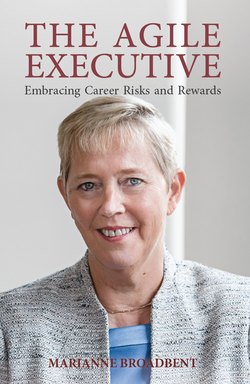Читать книгу The Agile Executive - Marianne Broadbent - Страница 13
На сайте Литреса книга снята с продажи.
Оглавление7
know and play to your strengths
Be realistic about your strengths and experience
Reflecting on what has, and has not, worked for you previously can give you useful information about your strengths, limitations and development needs.
What roles did you really enjoy and why, or what parts of your current role do you really enjoy and do well?
Working with a large corporate firm about four years ago, a colleague and I were having a feedback session with an ambitious young executive who reported in two levels below the CEO. Let’s say his name was Ahmed.
Ahmed was desperate for the next level role, and, unbeknown to us, had just missed out on that role for the second time in three years.
At the end of the session he asked straight-out did we think he would ever obtain that role, or one just like it? To date, no one had really explained to him why he had been unsuccessful—twice.
Our response, in a respectful but direct manner, went something like this, ‘Well if you spend years developing a few particular areas, and then turn yourself inside out and become a different person, maybe you might get there. But why would you want to do that?’
He was a bit stunned and we then had a more measured discussion about his real strengths and where these—plus his great experiences—could take him. Three years later he continued to use his attributes well in an expanded role in the same firm, but not in the type of role to which he originally aspired. And he is quite okay with that.
You should seek this sort of feedback on your own skill set. It might come from your boss, colleagues, those you lead or your clients, customers or other stakeholders. It could come through a formal 360-degree process, or thoughtful feedback and interactions with your friends and family. Hopefully it comes from all of those sources.
Invest in your development
Self-awareness about your strengths, together with your limitations (euphemistically called your development needs), provides the basis of your personal development and investment plan.
Where can your strengths, capabilities and attributes be deployed most appropriately? Are there areas that really matter? Which one or two areas, with a small investment, will make an exponential impact on your contribution, job satisfaction, or your options? Know what areas don’t matter so much and accept that these are not your strengths, nor are they likely to be, and so be it.
Part two examines what you should be doing in relation to those you lead and manage. For now, let’s focus on you.
Many years ago, a fellow panel member, Bob Bisdee, gave me a coffee mug at an industry conference. Bob was a careers counsellor for many years and the motto Bob had on those mugs was ‘steer your own career’. I kept that mug for many years as something of a reminder, as I thought it was very good advice.
Christine Kilpatrick began her career as a medical intern and resident, before a rotation in neurology convinced her to become a neurologist. She later became the Chief Medical Officer at Melbourne Health where she realised that, despite her somewhat extensive medical experience, in order to truly gain the credibility she needed for that role, and to become a CEO, she had to invest in an MBA.
A decade or two ago, people working in large organisations or government agencies would expect the organisation to take the initiative in development opportunities for them.
Organisations do need to invest in their people, but the most effective development takes place in those that are attuned to benefit from it—those with a strong orientation to accept responsibility for their own development and invest in it.
Professional development, formal and informal, and professional engagement, has always been a key part of my DNA. It has brought me into contact with some fabulous people throughout my career.
In the work I do today, it is something we look for in those we are working with. I am always amazed at those who seem to get by without this form of stimulation and commitment. They just don’t know what they are missing—until it is too late.
Self-development is your responsibility
These days, most employees get that self-development is their responsibility too.
It’s always been something I’ve prioritised. In the 1970s I developed an early interest in how computers could be applied to indexing and making documents more readily available. This might not sound too exciting to some, but a whole new world was opening up—not much was happening on this front in the school system at the time, but things were starting to develop in local government libraries.
My local library at Ryde in Sydney was an early mover. While on maternity leave for child number four, I approached them about the possibility of working a day or two a week to understand how this all worked and to gain some experience to take into the education sector.
